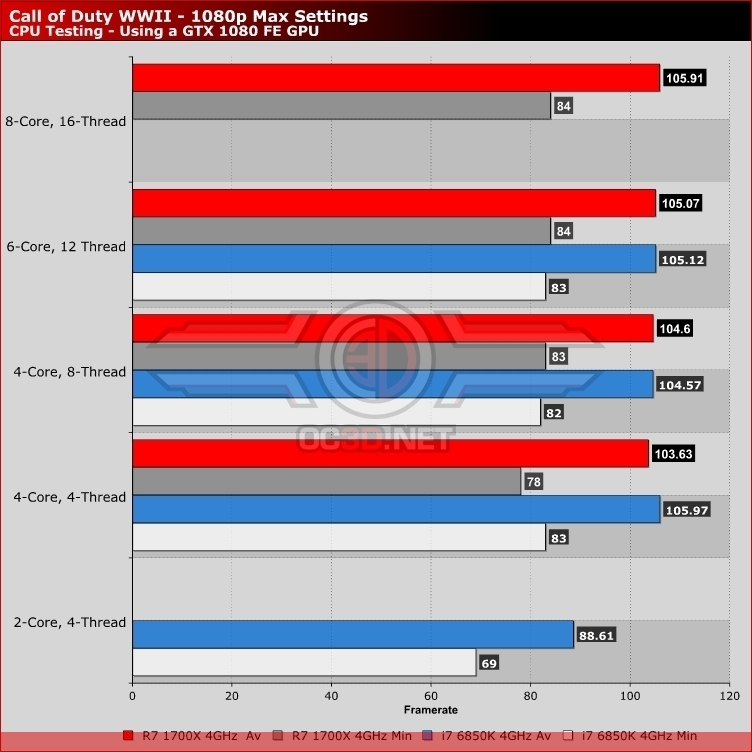Call of Duty: WWII PC Performance Review
CPU Benchmarks – Ryzen & Intel – Does this fight need strong CPU cores? Â
Methodology
Full on CPU performance testing is something that is relatively new in our PC game performance analysis pieces, with Ryzen performance being a new addition to our hardware test suite.
Here we have tested the game using an Intel i7 6850K Broadwell-E Hex-core and an AMD Ryzen 7 1700X over a variety of core configurations when playing the game at 1080p max settings on a GTX 1080. Both CPUs are run at similar clock speeds.
We ran our Ryzen 7 1700X with 8/16, 6/12, 4/8 and 4/4 core/thread configurations to closely match results from Ryzen 7, 5 and 3 processors. Note that in all of these tests that 16MB of L3 cache was active and that these are not exact emulations of each Ryzen series CPU at the same clock speeds. Even so, these results represent a reasonable ballpark figure.
On the Intel side, we tested 6/12, 4/8, 4/4 and 2/4 core configurations to represent Intel’s current generation i3, i5 and i7 CPU core configurations. Both CPUs are clocked at 4.0GHz.
Call of Duty: WWII
With Call of Duty: WWII it is clear that at 1080p max settings that the game is primarily GPU limited, with only our dual-core, quad-thread configuration falling behind in terms of game performance. This is great news for those who want to play this game at ultra-high framerates, as it looks like any strong quad-core are greater system will be able to easily handle constant 100+ FPS gameplay with enough GPU power or lower graphical quality settings.Â
When playing the Call of Duty: WWII at higher framerates the game can become a little more CPU-limited, though at this point the game is already playing at well over 100FPS and tends to be more single-thread limited than CPU core limited. Regardless, users of CPUs with four or more strong CPU cores should not have an issue running this game with steady 60+ FPS framerates.Â
Â




